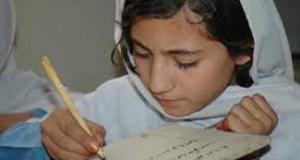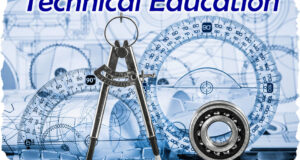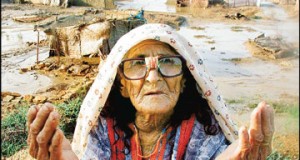By Qaisar Shehzad Farooq
 Prof. James Petras argues with the reference of PEW Research Center report that there is a wide gap of opinion between elites and public about US Imperial Intervention in World Conflicts. By a vast margin (52% to 38%) the public agree that the US “should mind its own business internationally and let other countries get along the best they can on their own”. This represents a major increase in public opposition to armed US imperialist intervention and the 52% response in 2013 contrasts sharply with 30% polled 2002.
Prof. James Petras argues with the reference of PEW Research Center report that there is a wide gap of opinion between elites and public about US Imperial Intervention in World Conflicts. By a vast margin (52% to 38%) the public agree that the US “should mind its own business internationally and let other countries get along the best they can on their own”. This represents a major increase in public opposition to armed US imperialist intervention and the 52% response in 2013 contrasts sharply with 30% polled 2002.
US imperial intervention, false flag operations, dis-information campaigns and big lies of mass media remain the burning issues in the think tanks, intellectual discussions and literary circles all over the globe and these debates are predictions of the potential credibility crises which the media houses will have to face in the recent years.
Words are the striking images of thoughts; they shine with the heat of creation, become everlasting expression of sufferings of humanity and have a power to revolt with the credibility of the message and messenger. Every missionary, every communicator and every messenger keep focus to build credibility and then on constructing the message and delivering it to people at the right time. When an information passed on to common man, the first question that raises in his mind is either this information is credible and he/she should have to replicate this information in his/her knowledge database or simply over through it. If the information is perceived as credible then this information becomes the knowledge and intellectual capital to create a prosperous society and if information is considered as unbelievable then this information is considered as chitchats and rumors which create uncertainty and vagueness in the human society.
Today we can clearly draw the lines between different agendas of mass media; that how the mainstream media focus only on the news stories of drugs to justify the War against Drugs, stories of weapons of mass destructions to fight against the Weapons of Mass Destruction and today the stories of terrorism and terrorists to impose an un-ended Global War against Terrorism. There are many conspiracies about the planted stories of Cold War, Gulf War and War against Terrorism that how the enemies are deteriorated morally, ethically, culturally and economically by the mainstream media.
Information is processed in a way by the power players to defame their opponents in the name of humanity, peace and religion by calling bad names and tagging inhumane acts with their opponents to generate requisite context. The way in which planted defense analysts are marketing on dead bodies and public relations experts are justifying the wars is actually a murder of history and a question mark on the credibility of mass media globally.
This is the era of information warfare in which media is being used as a strong weapon to win the psychological wars in the heart and mind of the masses. In this age of information; sender, message, medium and receiver all are on the mercy of corporate media owners and gentile media masters. Mainstream media is owned and controlled by approximately five or six transnational corporations or media conglomerates which are at the same time dominating the political economy and controlling the mind of the masses. The clicking of media consumers from breaking news to soft news is challenging for media organizations to save their credibility for their corporate objectives.
There is a wide gulf of misperceptions and misconceptions between media owners, journalistic bodies, academia and civil society about the role of mass media in the development of a society. Media owners have the point that they invest only in the media houses to run it as a corporate organization not as a charity institutes and these are run by the revenues, generated by marketing their space and airwaves. But on the other hand media critics have argued that space, time and airwave is purely a public property for infotainment and this public property should never be exploited for revenue generating purposes like: advertisements, promotion of consumerism, glamour, violence, economic uncertainty, moral degradation and excessive commodification.
This debate is not new in media men, journalistic circles but as old as the history of mass media itself. Journalists are inclined only to the missionary and herald role of mass media while media owners are concentrated only on the economic outcome of their heavy investments. At the same time a third party which includes; social scientists, media researchers and deans/chairpersons school of journalism have the view that there should be a balanced and ethical economics in the field of journalism which saves at a time the economic interest of owners, herald mission of journalists and ideal objectives of the academia’s.
Qaisar is a creative writer, dedicated researcher and contemporary blogger in the perspectives of Global Information Management Systems. His research thesis “Framing War against terrorism” is considered an excellent and model study by academician, historians and renowned supervisors. He had already coordinated research studies in media, literature and development campaigns. His bilingual (English & Urdu) analytic articles about social national and international issues published in newspapers & blogs.
Published in The Balochistan Point on December 30, 2013
 Balochistan Point Voice of Nation
Balochistan Point Voice of Nation



